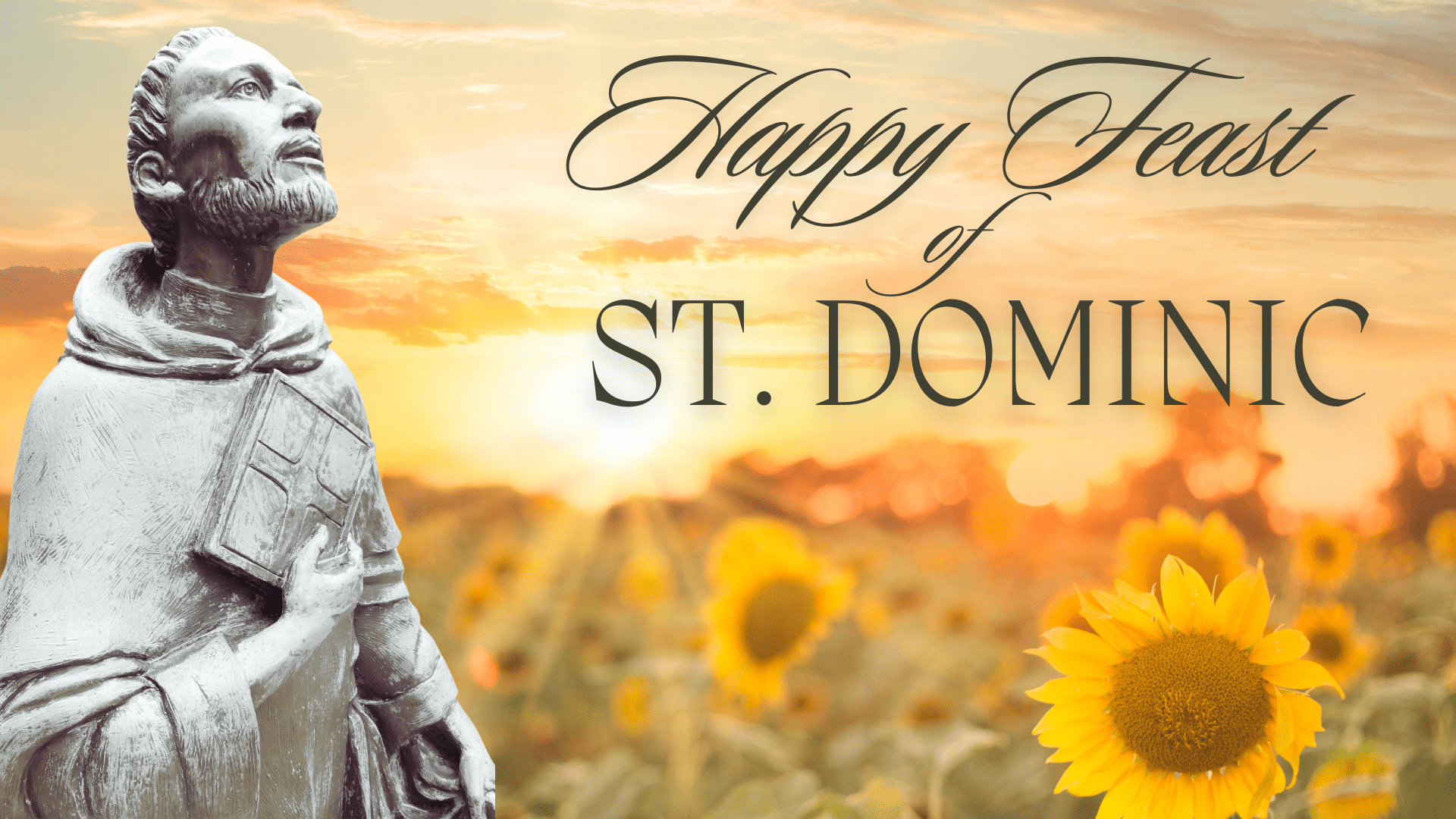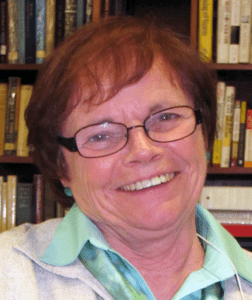
"How beautiful upon the mountains are the feet of those who bring Glad Tidings:
What a perfect quote to describe St. Dominic.
As a young woman looking to enter this Congregation, I was clueless about St. Dominic. Other than the fact that he was the founder of the Order, I knew nothing about him. During the past week, I've asked several sisters about this lack of knowledge, and except for one, their experience was the same as mine. What drew me and the others to our Congregation was meeting our sisters, in my case, our sisters at Cathedral High School, where we had four or five communities teaching. The Sparkill Dominicans stood out as joyful, engaging, and real. They seemed to like each other. I also must admit, I thought their habit was the best looking by far.
It was a few years later, after profession, when Sr. Ursula Joyce gave a talk on Dominic and Dominican Life that I first began to learn a little about our founder. What stayed with me from that evening was hearing that Dominic sold his books, manuscripts, and even his furniture to purchase food for hungry families.
Many things have been said about Dominic, and many books have been written. For the next few minutes, I would like to focus on just a few characteristics of his life that have been speaking to me.
We Belong to One Another Some of you may already know this story. When I was serving as Pastoral Care Director for a community of sisters in California, I facilitated a weekly study group for sisters interested in studying Cosmology together. After about a year of meeting, one sister, Johanna, a feisty woman who had worked with lepers in Malachi and had just celebrated a birthday, came to a session and told the group that a sister had stopped her and said, "Johanna, you are 93 years old!" Joanna told us, "I wanted to tell her, No, I'm not- thirteen billion years old. I'm part of the flaring forth from the first supernova." Johanna was stating what she had come to know as true and what faith and science teach us. All is connected, all is one. We are Kin. We belong to each other and all of creation.
Dominic knew that. He knew that the Albigensian Heresy—which taught that spirit is sacred and matter is evil, and therefore even denied the Incarnation—was false. He knew that all of God's creation is connected and holy. Dominic’s preaching knew no geographic boundaries. He traveled on foot, like Jesus, often walking barefoot. He knew the feel of the earth and the beauty of nature; he saw the sunflowers turn their heads to follow the sun. He knew the changing seasons. He also met diverse groups of people in different countries and was known for his joy, affability, and kindness. All belong in God's love.
Today, thanks largely to technology, we are much more aware that we are part of a global Church, a global Dominican Order, and a global sisterhood. We are also more aware that we are responsible to each other and for each other. I suspect Dominic would have much to say today about the care of our planet, and would join Pope Francis in saying, “The cry of the earth and the cry of the poor are one” (Laudato Si’).
Mercy and Compassion – The writers of Dominic’s life tell us that, in his constant prayer well into the night, Dominic was heard weeping and crying out, “What will happen to the sinners?” He also wept for those caught in poverty and for the downtrodden, moved by their suffering—suffering that led him to sell his belongings and even to spend a whole night with an innkeeper, helping the man see the fallacy of the Albigensian heresy. His compassion also inspired him to assist a group of outcast women, creating the first monastery for nuns. The style of community Dominic introduced was one of friendship and trust, where everyone had a voice.
He insisted that his brothers live simply. His final words to them on his deathbed were:
“Behold, my children, the heritage I leave you: have charity for one another, guard humility, and make your treasure out of voluntary poverty.” (Saint Dominic, from his last will and testament) How countercultural is that?
Be Useful – Simon Tugwell, the English Dominican, writes that Pope Honorius, in his approval of the Order’s founding, said: “Your Order was founded to be useful”—that the prayer of its members should lead to action. The understanding is clear: if one seeks to be useful to Christ, one will be useful to others.
I’m reminded of what psychologist Clarissa Pinkola Estés told a class of spirituality students: “The healer is the one who can sustain a heart broken wide open, for that is the heart that sees with a thousand eyes.” To be useful requires a ministry of open eyes—looking all around, leaving nothing and no one out, seeing the immediate need.
What do we see as we look beyond ourselves to our neighbor, to the environment? Is that not what our Foundress did? Is that not what our women and friends have done for the last 150 years?
The Master of the Order, Gerard Timoner, reminds us: “We are preachers even when we are old or sick and can no longer speak. We are preachers even when we are young and silenced by our shyness. We are preachers even when we are not ordained. We incarnate preaching by our very lives. This is our mission, our being.”
We were preachers this morning when we gathered and gave witness by praying the rosary on Route 340, calling for justice for our brothers and sisters. We are preachers when we are a peaceful presence to each other.
And finally—really, firstly—Truth. Dominic’s life and work were about truth. We live in a time when truth is under attack, when confusion and falsehood are sown widely. To practice truth takes courage. The word courage comes from the French cœur—heart. To have courage is to stand by your heart, to act out of what is most deeply known there.
If we bring to contemplation the words of Jesus, “I am the way, the truth, and the life,” we are drawn to study and follow how Jesus lived: how he practiced mercy and compassion, welcomed the stranger, forgave, and was open even to being challenged (as by the Syro-Phoenician woman).
What would Jesus say about babies dying of hunger in Gaza, Haiti, or Sudan—where journalists cannot even enter to record the horror? What would Jesus say about immigrants living in cages or in mosquito-infested tents?
What is the heresy of today? Is it not heresy when money reigns and people and the earth are treated as disposable? Today’s Gospel calls us to live in the light, to speak, and not to hide our gifts under a bushel basket.
The Zen poet Bashō wrote: “I do not follow the footsteps of those of old. I seek the things they sought.” In this Jubilee Year of Hope and our 150th anniversary, we must ask: What do truth, compassion, mercy, and belonging ask of us? If we seek what Dominic sought, we will be able to say with St. Paul in today’s reading: “I have run the race; I have kept the faith.”
Holy Father Dominic, pray for us. Amen.
– Sister Aileen Donovan
Sister Aileen currently serves on our Leadership Team.
